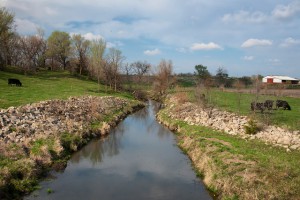Agricultural pesticides contaminate water across the globe
Insecticidal pollution in global water ways receives little attention relative to other pollution sources. Now, a new meta-analysis published in the Proceedings of the National Academy of the Sciences has found that surface water pollution from agricultural pesticides “constitutes an excessive threat to aquatic biodiversity.” Researchers synthesized 838 peer-reviewed studies to evaluate the level to which surface waters worldwide were contaminated with toxic agricultural insecticides. Information on surface water contamination from more than 2,500 sites in 73 different countries was gathered to determine if the measured concentrations of insecticides exceeded the legally accepted threshold levels. Analyses showed that in the majority of water samples measured, insecticides were not detected. However, there was no scientific data for almost 90% of surface waters from areas of high agricultural intensity. Of the sites that did test positive for pesticides, more than half exceeded the legally acceptable levels of pesticide contamination. Even more surprising was that highly contaminated waters were present even in the countries with the strongest environmental regulations, with newer insecticides such as pyrethroids accounting for a larger amount of current pesticide contamination. “Reforming conventional agricultural systems and adopting promising approaches from organic farming, including the elimination of pesticides wherever applicable, in concert with the closing of yield gaps on underperforming lands and precision agricultural techniques, are possible ways to meet the twin challenges of providing sufficient food for a growing human population and reversing the global environmental impacts of agrochemical-based high-intensity agriculture,” the authors concluded.


